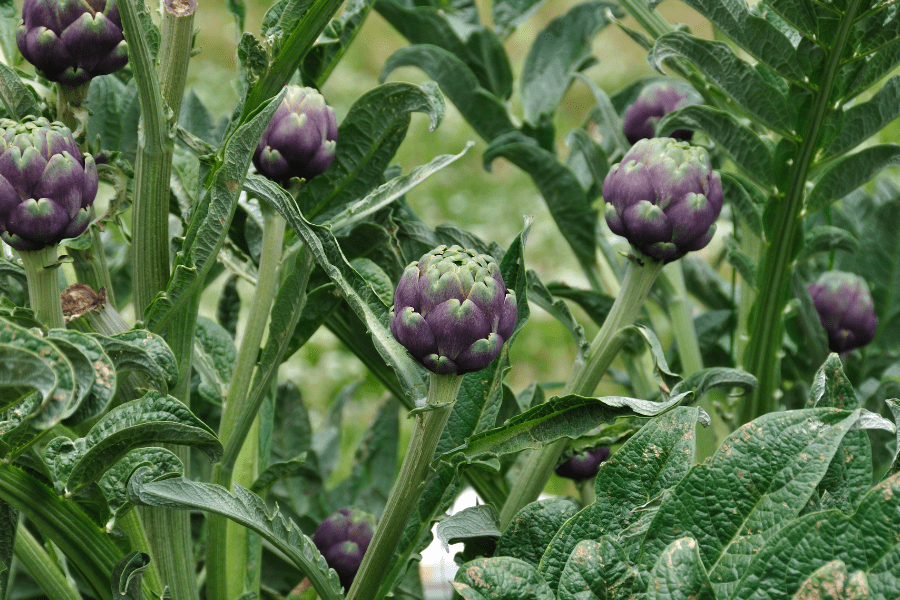Best Herbs for Making Digestive Bitters At Home
Digestive bitters have been used for centuries to support digestive wellness. By incorporating bitter herbs into your diet, you can enhance your digestive response and overall well-being. In this guide, we’ll explore the best herbs to use for making your own digestive bitters tincture.
This post includes affiliate links. Click here for my full disclosure policy.
Bitters
Understanding Digestive Bitters
Digestive bitters are herbal preparations characterized by their distinctly bitter taste, traditionally utilized to enhance digestion and support overall health. These concoctions typically consist of alcohol-based extracts derived from the leaves, flowers, bark, or roots of bitter plants. The history of digestive bitters can be traced back to ancient civilizations, with evidence of their use found in Egyptian wine jars (Bennett, 2015). However, the modern concept of medicinal bitters is often credited to Dr. Johann Siegert, who developed Angostura bitters in 1824 as a remedy for soldiers suffering from malaria and seasickness (Siegert, 2003).
The effectiveness of digestive bitters is largely attributed to their interaction with the body’s taste receptors. When consumed, the bitter taste stimulates the production of saliva and digestive enzymes, effectively jumpstarting the digestive process. This reaction is rooted in the body’s survival instinct, as bitter flavors historically signaled potential poison ingestion (Fischer, 2018). Interestingly, bitter taste receptors are not limited to the tongue; they are also present in the stomach, gut, pancreas, and liver, allowing for a comprehensive digestive response (Kinnamon, 2019).
Incorporating digestive bitters into your routine can offer several potential benefits. Research suggests that bitter herbs can help regulate appetite and calorie intake, which may aid in weight management (Bennett, 2015). Additionally, bitters may stimulate the production of gastric juices, alleviating symptoms such as heartburn, cramping, and indigestion (Fischer, 2018). Some bitter herbs, like bitter melon, have shown promise in managing blood glucose levels in individuals with diabetes (Kinnamon, 2019).
However, it is essential to note that while digestive bitters have a long history of traditional use, more research is needed to fully understand their effects and potential interactions with medications. As with any supplement, consulting with a healthcare professional before adding digestive bitters to your regimen is advisable, especially for those with existing health conditions or who are pregnant or breastfeeding.

Herbs for Making Digestive Bitters
- Angelica Root: Known for its ability to support digestive function and improve circulation.
- Gentian Root: Contains compounds that support digestion and can help with occasional indigestion.
- Dandelion Root: A powerful antioxidant that supports liver health and digestion.
- Ginger Root: Helps soothe the digestive system and reduce discomfort.
- Artichoke Leaf: Supports liver health and aids in digestion.
- Chicory Root: Helps with digestion and bowel function.
- Wormwood: Supports overall digestion and can help increase appetite.
- Licorice Root: Has anti-inflammatory properties and supports digestive wellness.
- Burdock Root: An antioxidant that helps detoxify the blood and supports digestion.
My favorite source for bulk herbs to make all my herbal preparations is Mountain Rose Herbs. They are certified organic and fair trade. I’ve been using them for over 10 years and I have never had a bad batch of herbs♥
Additional Aromatic and Flavoring Agents
Citrus peels, particularly from lemons and oranges, are not only aromatic but also offer significant health benefits when used as flavoring agents. These peels are rich in essential oils, flavonoids, and vitamin C, which can enhance both the taste and nutritional value of digestive bitters (Bennett, 2015). Lemon peel, for instance, contains d-limonene, a compound known for its potential to support digestive health and reduce inflammation (Fischer, 2018). Orange peel, on the other hand, is high in hesperidin, a flavonoid that may help improve cardiovascular health and reduce oxidative stress (Kinnamon, 2019).
Citrus Peels For Bitters

Fresh herbs, such as rosemary, can be excellent additions to digestive bitters, offering both flavor and health benefits. Rosemary contains rosmarinic acid and carnosic acid, which have been shown to have antioxidant and anti-inflammatory properties (Smith et al., 2020). These compounds may help protect the digestive system from oxidative damage and support overall gut health. Moreover, the aromatic qualities of rosemary can stimulate the olfactory senses, potentially enhancing the digestive process through the cephalic phase response (Johnson, 2017).
Spices like cinnamon and star anise can significantly enhance the flavor profile of digestive bitters while also contributing to their therapeutic effects. Cinnamon, for example, has been traditionally used to aid digestion and may help regulate blood sugar levels (Brown, 2016). Star anise, rich in shikimic acid, has been found to have antimicrobial properties that could potentially support gut health (Lee & Kim, 2018). These spices not only add depth to the flavor of digestive bitters but also complement their digestive-supporting properties, making them valuable additions to the blend.How to Make Digestive Bitters
How to Make Digestive Bitters
My favorite recipe for making bitters.
Preparing your workspace and ingredients is the first step in creating homemade digestive bitters. Start by gathering all necessary components, including dried herbs, citrus peels, and any additional flavorings. Common bitter herbs include angelica root, gentian root, and dandelion root (Bennett, 2015). Ensure you have a clean, sterilized 12-ounce mason jar, cheesecloth or a fine-mesh strainer for later use, and high-quality vodka as your base alcohol. It’s crucial to use organic ingredients whenever possible to avoid any unwanted chemicals in your final product (Fischer, 2018).

The steeping process is where patience becomes key. Store your jar in a cool, dark place for 2-4 weeks, shaking it daily to agitate the ingredients and promote infusion (Kinnamon, 2019). This timeline allows the alcohol to extract the beneficial compounds and flavors from the herbs and botanicals. The longer you let it steep, the more potent and complex the flavors will become. However, be cautious not to over-steep, as this can lead to an overly bitter or astringent taste.
After the steeping period, it’s time to strain and bottle your bitters. Line a fine-mesh strainer with cheesecloth and place it over a large measuring cup or bowl. Slowly pour the contents of the jar through the strainer, allowing the liquid to drain while catching the solid ingredients (Smith et al., 2020). Once strained, transfer your bitters into dark glass dropper bottles for storage and easy dispensing. Amber glass bottles are ideal as they protect the bitters from light exposure, which can degrade the quality over time. Properly stored, your homemade digestive bitters can last for up to a year, providing a long-lasting aid to your digestive health.
How to Use Digestive Bitters
The recommended dosage for digestive bitters is typically around 1/4 teaspoon (or about one full dropper) before meals. This amount is sufficient to stimulate the bitter taste receptors and initiate the digestive response (Urban Moonshine, 2017). For optimal results, place the bitters directly on your tongue and hold them in your mouth for 10-15 seconds before swallowing. This allows the bitter compounds to fully interact with the taste receptors across your entire tongue, maximizing their effectiveness (Parsely Health, 2021).
The best times to take bitters are generally 10-30 minutes before meals. This timing allows the digestive system to prepare for incoming food, stimulating the production of digestive enzymes and stomach acid (Dr. Axe, 2022). However, bitters can also be beneficial when taken after meals, especially if you’ve overeaten or are experiencing bloating or indigestion. In these cases, taking bitters immediately after eating can help soothe the digestive system and alleviate discomfort (Loveleaf Co., 2019).

There are several creative ways to incorporate bitters into your daily routine beyond simply taking them straight. One popular method is to add a few drops to sparkling water or seltzer for a refreshing, digestive-supporting beverage. This can be particularly enjoyable before or after meals as a non-alcoholic aperitif or digestif.
For those who enjoy cocktails, bitters can be an excellent addition to both classic and modern mixed drinks, adding depth of flavor while providing digestive benefits (Urban Moonshine, 2017). Some people also find success incorporating bitters into their cooking, using them as a flavor enhancer in salad dressings, marinades, or even baked goods for a unique twist on traditional recipes (Dr. Axe, 2022).
Conclusion:
Making your own digestive bitters is a rewarding way to support your digestive wellness naturally. By using a combination of these powerful herbs, you can create a personalized tincture that suits your needs. Start experimenting with different herbs and flavors to find the perfect blend for you.

